A Clearer Picture of the Asian American Man
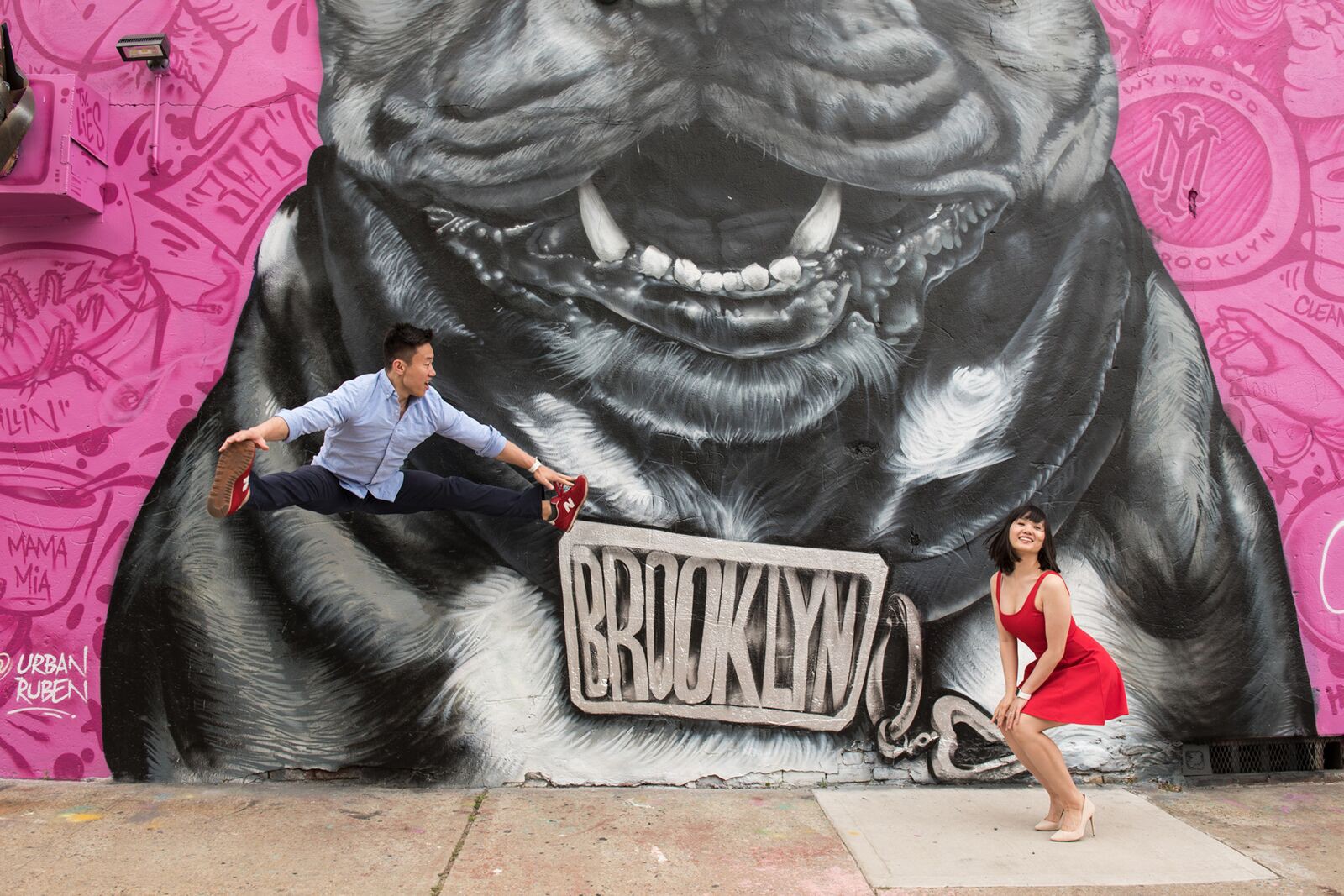
What caught my attention about Jason Shen was the research he initiated, one of the first studies to uncover deep insights about Asian American men. This is a uniquely fascinating topic entangled in a complex web of societal stereotypes, pronounced through media portrayals of Asian men as villains, geeks, or passive leaders, immediately relevant because of the pervasive sense that the masculinity of Asian men is up for interpretation. Jason’s research study, The Asian American Man, reveals the beliefs and experiences of East, South East, and South Asian American men. The study seeks to capture an honest and holistic view, exploring perspectives on media, race and society, dating, work, politics, religion, and more.
We first learned about Jason when we at Intertrend invited him to participate in #MakeNoiseToday, an initiative to bring Asian American stories to the forefront and change the narrative.
He took control of his own narrative as a serial entrepreneur and as the CEO of Midgame, a technology company that enhances gaming experiences with voice-enabled tools and helps competitive esports teams play better. On top of that, he mentors young entrepreneurs, creates content for publication, and is building several personal interest communities.
We’re telling the diverse stories of Asians in America and we see Jason’s work, contributions, and leadership shaping conversations in our community. Where he’s headed and what he makes next deserve our attention.
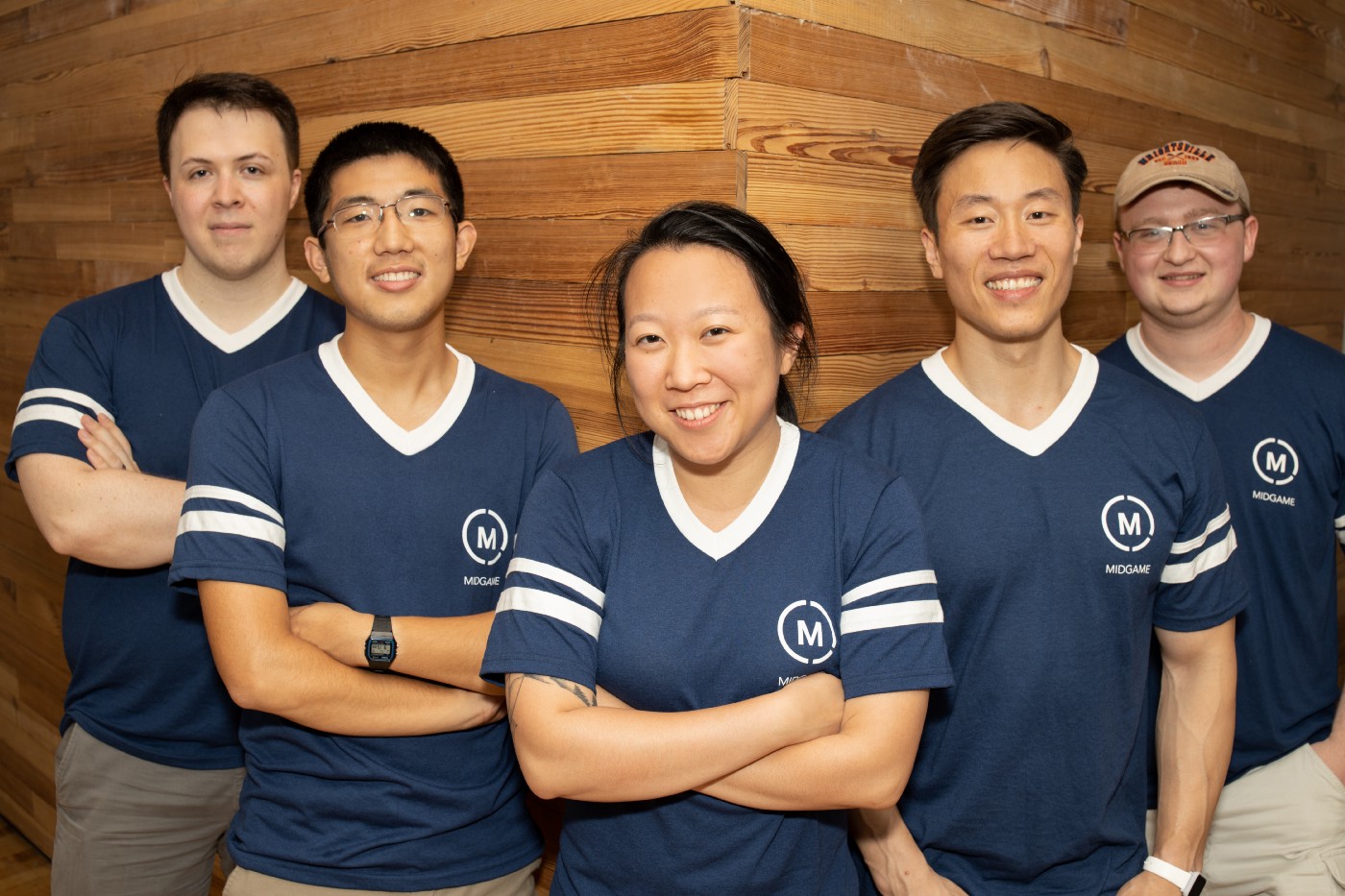
What are you currently doing and how has your career evolved?
After living that startup life as a tech entrepreneur for the last 3+ years and building both B2B (Headlight) and B2C (Midgame) companies, I recently found a home for my team. The details aren’t announced yet, but it’s a satisfying conclusion to the journey. I’m excited to start in a new role as a product leader building knowledge sharing tools at a major technology company.
I’m continuing to contribute to Fast Company, with my most recent piece focusing on how tech workers are adapting during the pandemic. I have an upcoming series on resilience that I’m very excited about.
During the transition from founder to operator, I opened a small practice where I coach early stage founders. It’s a chance for me to empower the next generation of entrepreneurs and support their personal growth while being an unbiased sounding board for their ideas.
I also started a whimsical, illustrated newsletter called Making Connections where we explore product thinking, geek culture, persuasion, social issues, and more. It’s been a lot of fun to have a place to be more casual and share what’s on my mind.
With respect to your startups, what have been some of the biggest challenges you’ve faced and the lessons derived from them?
There are many kinds of business owners and entrepreneurs, but in the world of tech startups, every founder has to nail 3 areas:
Build a product people want
A lot of this comes down to two things: that almost everyone shares a core set of fundamental desires — to be liked, to learn, to have fun, to feel important, to have control — and great products fulfill those desires in a unique and ongoing way. And also that before you can build a comprehensive product that does everything for everybody, you have to start with something small that does something really great for a few people — and then grow.
Recruit and lead great people
I feel lucky to have found partners in all of my businesses where we had mutual trust and respect and could work through good and difficult times together with. So many startups struggle when the founders run into conflict. Being open with each other about how we feel and what we’re concerned about has been key there.
Hiring employees is always art and science, and I can’t say I figured it out. But it’s important to know that someone who has a good fit when you’re a four person team might not be as good of a fit when you’re a fifty person team or who might not fit a 1000 person team.
Get money (usually via pitching VC)
If I were to go back and advise myself here, I’d say:
- It’s partially a numbers game
- No one knows exactly what’s happening (whether that be other founders, industry experts, or other investors) so don’t overthink your strategy
- Always bring your swagger into the meeting
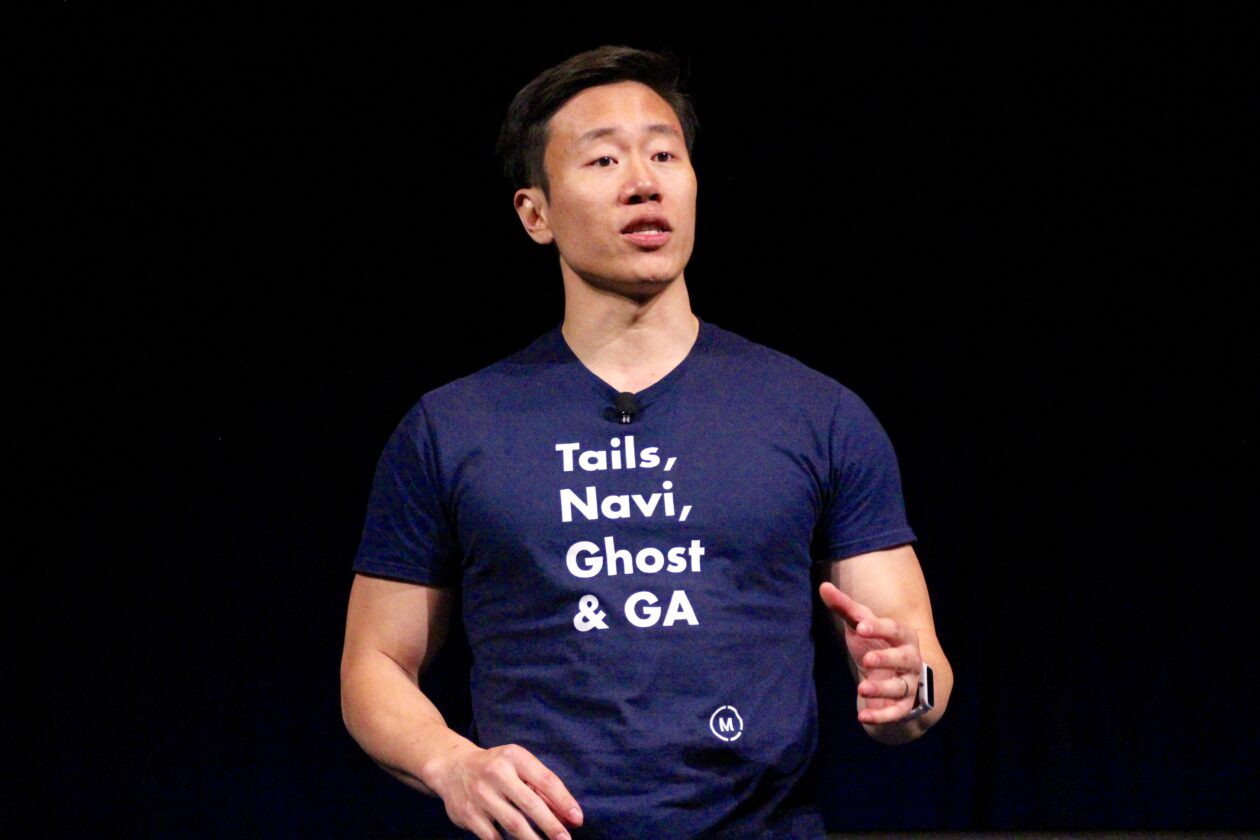
How did the Asian American Man study come to fruition and what were your objectives with it?
In the fall of 2015, I was catching up with my friend Shiyin while we walked from Union Square Park. We had been close in high school but lived on opposite coasts for a while and now were back in the same city — he was finishing up a medical residency at a major hospital in New York City. We talked about our experiences living, dating, and working as Asian American men and we wondered how lives compared to our peers. At that moment, I realized that despite living our whole lives as Asian American men, we didn’t have a good understanding of what Asian American men face in this country.
I realized that we needed data. I had never seen any kind of survey that focused on Asian American men. So I put together a simple 28 question survey and asked for help on Twitter. Three hundred responses later, I knew I had hit something big.
What were some of the findings that most surprised you?
-
84% of men have been asked “Where are you from?” or “What nationality are you?” or a similar ethnicity related question in the last three months — a question that 80% of men have a neutral or negative reaction to. Nearly all (98%) of South Asian men had been asked with 30% being asked more than 6 times. Not actually a huge surprise but how high the numbers were is staggering. This kind of experience naturally leads to feeling like “an other” rather than someone who belongs In this country.
-
About 70% of Asian American men have dated someone white, 28% have dated someone Latino / Hispanic, and 18% someone Black / African American. This was interesting because there’s sometimes a narrative that Asian men “can’t or are unable to date” non Asians and the study shows that’s clearly not true. The data did show that Asian American men still date within their race at higher rates (~75%) but there’s at least some interracial dating as well.
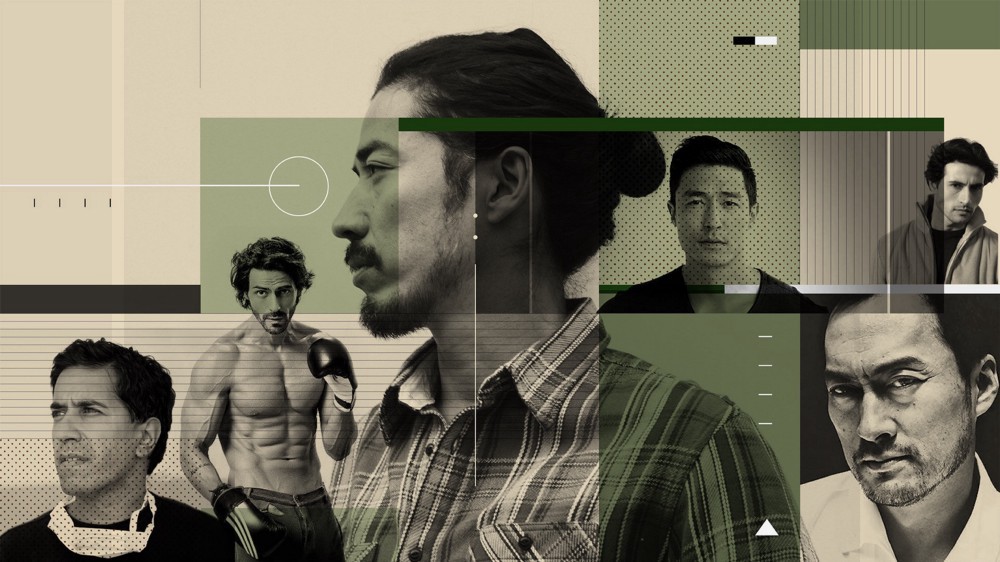
What are some of the challenges that Asian American men face, both the obvious and less apparent ones?
I think one area where Asian men face a double whammy is in not being in touch with their emotions. Many Asian cultures discourage being overly expressive with one’s emotions and wearing one’s heart on one’s sleeve. And men in general, in many cultures, don’t learn to connect with their feelings as well as women do. In western cultures, expressing emotion is a powerful way to connect with others, persuade, and lead. That has an impact in work, dating, commerce, politics, media, just about anything that has interpersonal dynamics.
When Alan Yang won an Emmy for his work as a producer on Master of None, in his acceptance speech he encouraged Asian parents to let their kids get into the performing arts. You’re starting to see a lot of really stand out Asian American women like Lana Condor, Ali Wong, Awkwafina, and Maitreyi Ramakrishnan (whose Netflix show Never Have I Ever is produced by Mindy Kaling, a long standing Asian American star). But while there are some great Asian men in media out there, the bench is definitely not as deep and I think this double whammy is part of that.
How are Asian American men misunderstood in American society?
They’re honestly just not heard from. Whether that’s actually in person or in the pages of op-eds (which if you notice the next time you read one about the Asian American experience, it’s more likely to be a woman). I think this is a combination of not feeling empowered to speak their experience, and a culture that isn’t really looking to hear from them. I think there’s a lot of frustration, sadness, and anger that’s under the surface without a place to go.
On a more positive note, I think that Asian American men are proud of both their ethnic heritage and their American identity.
Overall, three-quarters (75%) of Asian men agreed or strongly agreed that they’re proud of their heritage, although East Asian men are more likely to “strongly agree” compared to South or Southeast Asian men, who were more likely to simply “agree”.
A significant majority of respondents (82%) responded “Agree” or “Strongly Agree” with the statement “I consider myself an American”. While directionally similarly, there was a statistically significant difference between men born in the US (88%) vs born in Asia (79%) for responding “Agree” or “Strongly Agree”
However, men had more ambivalence to the idea that the people around felt the same way, with only 61% responding “agree” or “strongly agree” to the statement “the people who encounter me in day-to-day life consider me an American”.
There is increased momentum of Asian Americans in media, entertainment, business leadership, politics, and more. Who are some positive Asian male role models that are pushing the narrative forward?
From our 2016 study, we found that the number one “Most Admired Asian American Man” was Bruce Lee. Lee was a pioneer, a leading martial artist, charismatic actor, and philosopher and thinker who died in his prime under mysterious circumstances. But that said, I think it’s absurd that we are still focused on someone who has been dead for almost half a century!
I think Andrew Yang’s underdog campaign for the Democratic candidate for Presidency was very inspiring and his focus on UBI is arguably the key reason why stimulus checks during the pandemic have been approved by both parties without too much debate.
While Canadian, I’m a big fan of Simu Liu, who plays Jun in Kim’s Convenience and will be playing Shang-Chi in a Marvel movie once movies become a thing again. He’s got great energy on Twitter and I think everyone can learn from his hustle, and his workout routine.
Hasan Minhaj has been on a tear and I love that he spent a full two minutes explaining how to pronounce his name correctly on the Ellen show.
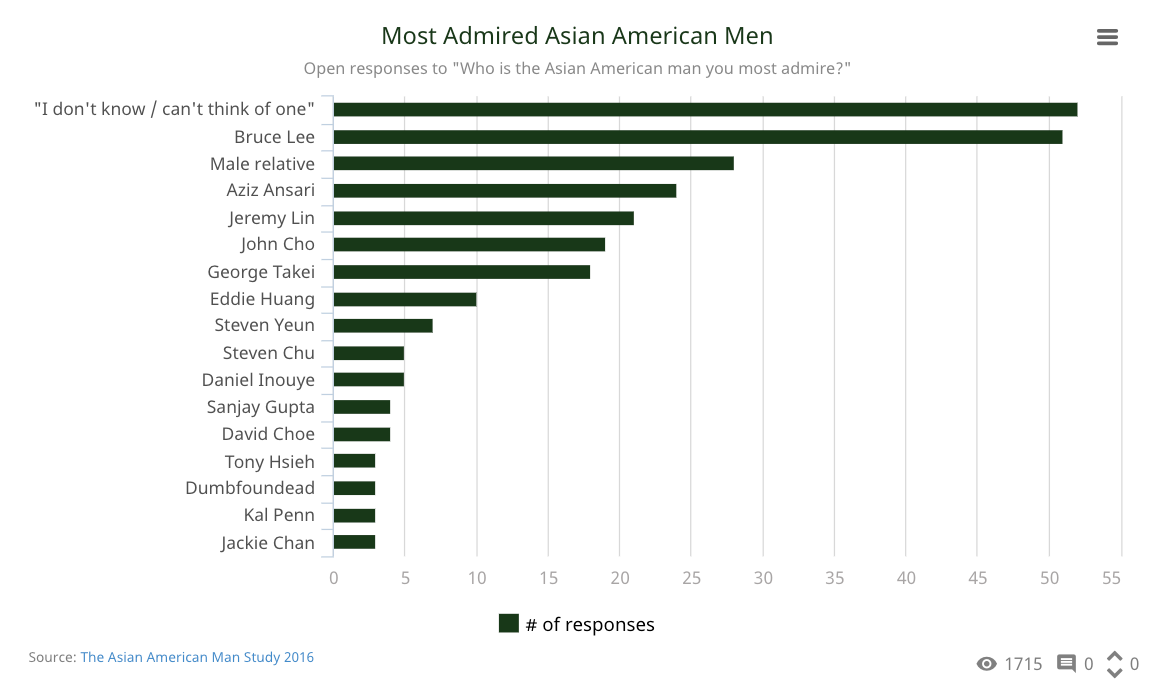
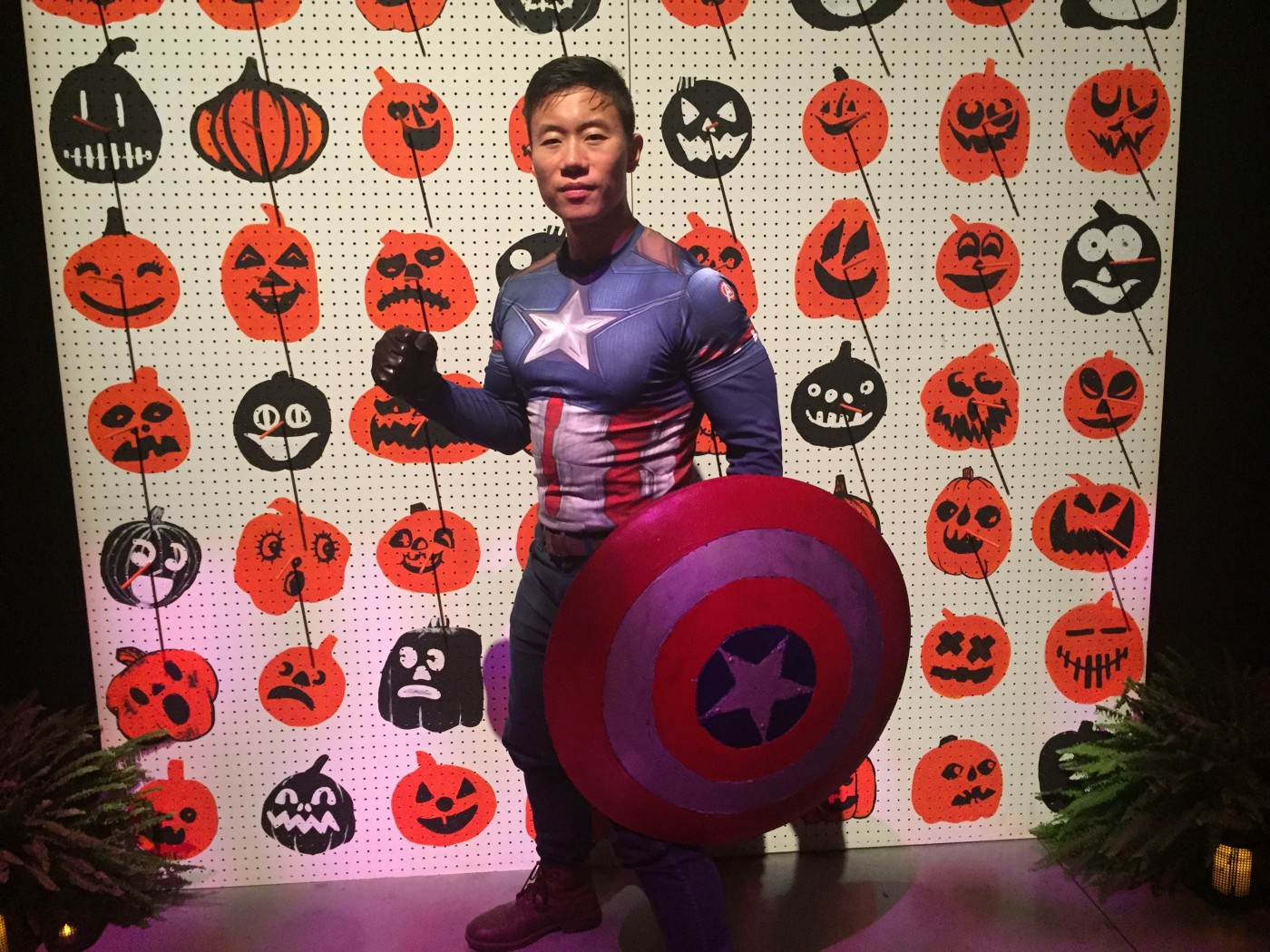
How do you think the Asian American experience differs for women? What role do Asian American women have in shaping the image of AA men?
Obviously I wouldn’t want to speak for the experience of Asian American women, except that they share many of the same challenges with Asian American men around being othered. While many Asian men might say that Asian women have an easier time being accepted into American culture and are viewed as more attractive, that view itself stems from a dark history of rape and forced prostitution of Asian women with American infantry in the Vietnam War and other international conflicts. That said, I do think some Asian American women are unaware of how their thoughts and actions align with existing power structures and in seeking to be white-adjacent, they perpetuate white supremacy.
In my Crushing the Myth talk, I shared how my wife, Amanda Phingbodhipakkiya, who is Thai and Indonesian, grew up thinking that she should only be attracted to, and date white men. It wasn’t an explicit message someone told her, but one she absorbed nonetheless. She was super confused when she first felt the hots for Asian guys, and it took her time to unlearn this internalized racism. Similarly, I had to unlearn ideas like that dating a white woman was some kind of accomplishment and a kind of “step up” from dating Asian women.
I think that the more we can see that toxic masculinity hurts men and women and that white supremacy hurts people of all races, the faster we can make progress towards an equitable world.
What do you hope for in the future for the Asian American male experience? How do you hope they #MakeNoiseToday?
Asian American men are organizing and stepping up. I’m part of a group called Badass Asian Guys that’s led by a couple of creative, thoughtful Asian men who organize happy hours and events and reject the cynical, negative views that plague certain “MRA Asians”. I want every Asian American man to find his own voice, to step into the light, embrace their feelings, and defend the people and causes that matter to them.